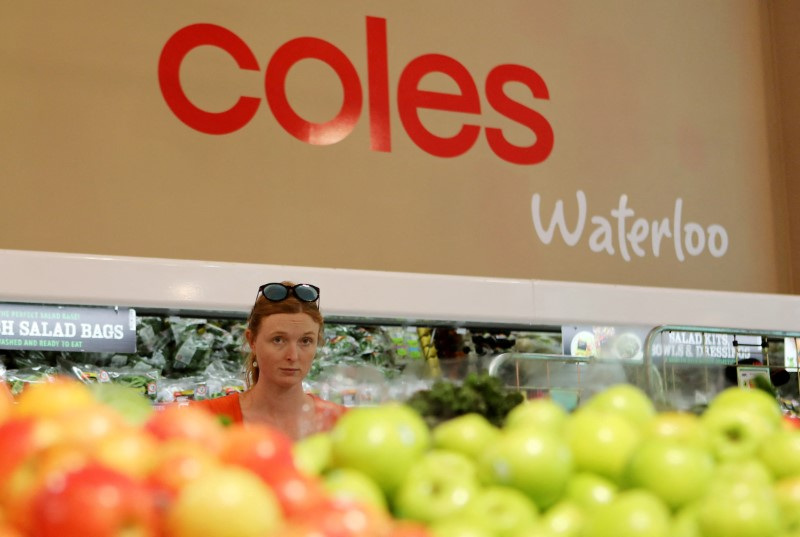Investing.com’s stocks of the week
By Byron Kaye and Rishav Chatterjee
(Reuters) -Australian No.2 grocery chain Coles said on Tuesday it was asking suppliers to ship more product after a slowdown in inflation encouraged shoppers to buy more, pushing its March quarter supermarket sales higher than analysts forecast.
The company, which along with larger Woolworths dominates Australian grocery sales, said shrinking prices of apples, avocados and red meat led downward pressure on shelf prices which rose just 1.9% in the period, excluding tobacco, from 6.4% a year earlier.
That brought on a surge in purchases, and supermarket sales, the company's main earner, rose 5.1% to A$9.1 billion ($6 billion) in the 12 weeks to March 24, the company said in a trading update that did not include profit numbers or guidance. Analysts had forecast sales growth under 5%.
"We're increasingly having conversations with proprietary suppliers ... around volume and stimulating volume growth, which is leading to more conversations around promotional activity," Coles CEO Leah Weckert said on an analyst call.
The update may ease political pressure on Coles and Woolworths, which is scheduled to give a quarterly update on May 2, to do more to address a living cost crisis that has heightened concerns about food insecurity in one of the world's wealthiest nations per capita.
Australia's centre-left Labor government has said it may force large supermarket chains to follow an industry code of conduct at risk of fines. A host of ongoing inquiries into the sector have also examined whether to give regulators power to break up the companies which together ring up 65 cents of every grocery dollar spent in the country.
On Tuesday, Weckert said that after two years of high inflation, customers were shopping around for deals.
"We know at the moment there are lot of customers that are trying ALDI for the first time," she said on the analyst call, referring to the German privately-owned discounter which has about 10% market share.
Shares of Coles were up 0.3% by late morning, in line with the broader Australian market, as analysts cheered a better than expected supermarkets division result but noted a decline in liquor sales which the company blamed on reduced discretionary spending.
Though liquor sales make up about 8% of group revenue, sales declined 1.9% from the same period a year earlier, Coles said.
($1 = 1.5277 Australian dollars)
